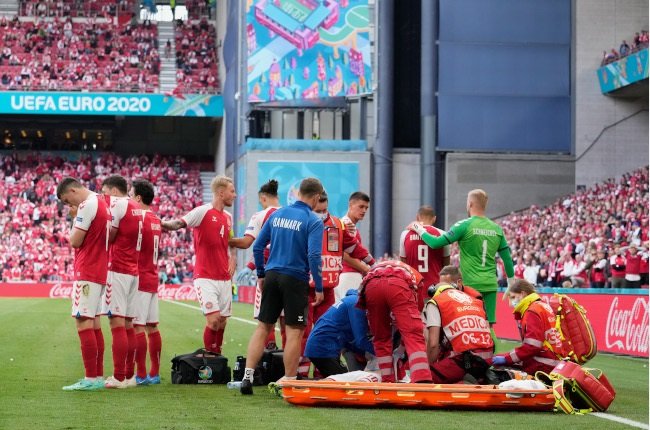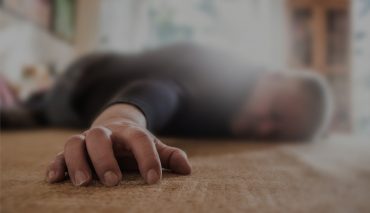We’re sure it doesn’t feel this way to him, but Danish footballer Christian Eriksen’s mid-match sudden cardiac arrest has done the world a great service. We all owe him a debt for taking one for the team.
By team, we’re referring to the community of individuals and organisations dedicated to improving survivability of sudden cardiac arrest.
And by service, we mean the good this experience has done to shine a light on sudden cardiac arrest, and what it takes to save a life.
The shock and distress of Christian Eriksen’s on-pitch sudden cardiac arrest in Copenhagen was felt by millions – as was the relief at his survival.
That something like this could happen to someone so young, and a professional athlete to boot, compounded the shock.
Why Christian survived
To survive a sudden cardiac arrest, someone needs to see it happen. Second, that witness needs to act quickly to call for help and perform CPR and defibrillation in the time it takes for emergency services to arrive.
Time is saved if the witness is quick to call emergency services, knows CPR, and has an AED (automated external defibrillator) to hand. These are the first three steps in what is known as the Chain of Survival.
It’s hard to think of a sudden cardiac arrest witnessed by more people than Christian Eriksen’s. His Euro 2020 football match was being aired live, in a stadium filled with thousands of spectators.
Christian survived due to the quick-thinking of witnesses and rapid access to defibrillation. This alone is a modern miracle in a world where less than one per cent of sudden cardiac arrest victims survive.
If on the other hand, a patient receives defibrillation in the first minute following a sudden cardiac arrest, their chances of survival are close to 90 per cent.
Christian was one of the lucky ones. He now has the chance to find out what caused his sudden cardiac arrest, recover, and hopefully, strap the boots back on.
What good can come from this?
Sudden cardiac arrest kills more than six million people every year.
It happens quickly, often without warning. When it does happen, there is very little time to react.
For every minute without treatment following a sudden cardiac arrest, chances of recovery drop by 7-10 per cent.
This is something we should all be aware of. As studies like this one show however, community awareness of AEDs and their role in saving lives from sudden cardiac arrest, is insufficient.
Christian Eriksen’s sudden cardiac arrest helped to do something about that.
Google searches for “how to do CPR” increased by a factor of 45 in the moments following Christian’s collapse. Over the week that followed, Google searches for “defibrillation” were up more than 500 per cent.
Football fans started lobbying the English Football Association to make sure AEDs were available at all football facilities, not just major stadiums.
Views of pages on defibrillators and how to do CPR on the British Heart Foundation (BHF) website have since increased by more than 2,000 per cent. It also gave BHF a chance to draw unprecedented public attention to its efforts to build The Circuit, its national defibrillator network.
In Denmark, in the 24 hours following the match, signups for the Swedish Heartrunner first responder app increased by more than 700 per cent.
RELATED ARTICLE: why we invented CellAED®
So many people die from sudden cardiac arrest because they are alone at the time, or they don’t receive help in time.
What happened to Christian Eriksen was terrible. It also offered a very high-profile lesson on what can be achieved when help arrives quickly.
That so many have taken that lesson to heart, and are acting on it to learn CPR, shows the good that can come from the bad.



